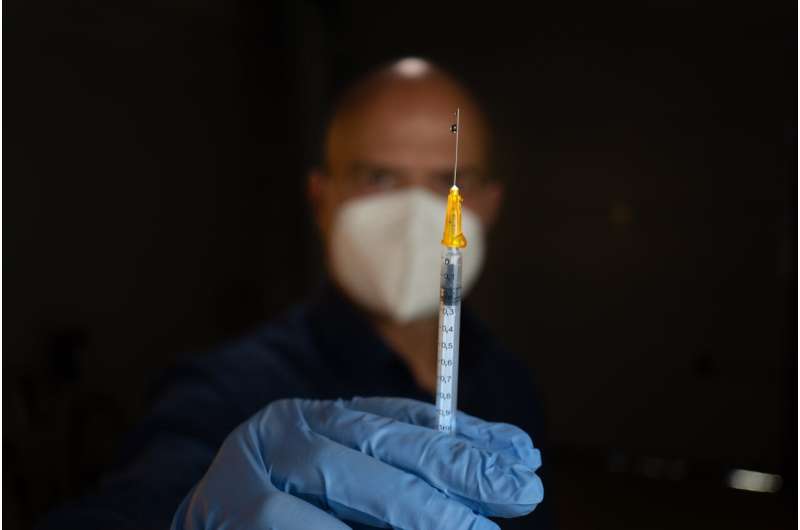Credit: Unsplash/CC0 Public Domain
"My doctor has not told me to get the vaccine."
"I do not think it is safe for me because I have cancer."
"I'm afraid of the side effects."
These were the three most common reasons given for declining COVID-19 vaccination, according to a survey of 194 high-risk cancer patients conducted by the Mays Cancer Center, home to UT Health San Antonio MD Anderson Cancer Center, in collaboration with clinical partner University Health.
Of the patients surveyed, 56% reported receiving at least one dose of a COVID-19 vaccination, which is lower than the community vaccination rate of 76%.
The survey results are being presented this week at the San Antonio Breast Cancer Symposium.
"The COVID-19 pandemic has created many challenges and barriers to care for patients on active cancer treatments," said Kate I. Lathrop, MD, a medical oncologist and breast cancer specialist at the Mays Cancer Center and associate professor of medicine at UT Health San Antonio. She is the lead author of the research, which surveyed patients on arrive to a University Health outpatient infusion clinic between May and June 2021.
Patients were given six options to select for declining the vaccination. Aside from those listed above, other options included "I already had COVID, so I don't think I need the vaccine" and "I want the vaccine but have not been able to schedule an appointment."
The Mays Cancer Center implemented a system within its electronic medical record to remind patients about COVID-19 vaccine.,
The study also included an analysis of vaccination rates before a reminder and after. Prior to discussing it with the oncologist, 45% of high-risk patients had not received at least one COVID-19 vaccine. After a reminder, the percentage dropped to 20%.
"We concluded that the reasons cancer patients declined the COVID-19 vaccination can all be addressed by improving patient/physician communication regarding the known safety of the COVID-19 vaccines," Dr. Lathrop said.
More information: Symposium: www.sabcs.org/2021-SABCS
























